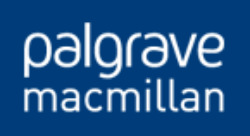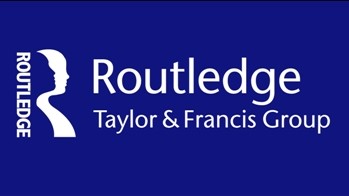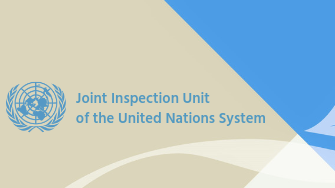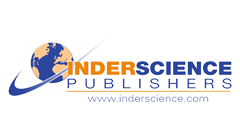- ABOUT
arrow_drop_down
- PUBLISHING
arrow_drop_down
- CONFERENCES
arrow_drop_down
- Overview
arrow_drop_down
- Past Speakers
- Host Requirements
- Sponsorship Opportunities
arrow_drop_down
- Search All
arrow_drop_down
- Search by Subject
arrow_drop_down
- Sustainability
- United Nations
- Diaspora
- Africa
arrow_drop_down
- MENA
- Policy
arrow_drop_down
- Climate Change
- Health
arrow_drop_down
- Education
arrow_drop_down
- Women
- Youth
- Leadership
- Business
arrow_drop_down
- Overview
- ACADEMY
arrow_drop_down
- Overview
- Training
arrow_drop_down
- Overview
- Search All
arrow_drop_down
- Forthcoming
- Past
- Search by Levels
arrow_drop_down
- Search By Subject
arrow_drop_down
- SUSTAINABILITY MASTERCLASS
arrow_drop_down
- PUBLIC POLICY
arrow_drop_down
- Public Policy
- Education
- Higher Education
- Health
arrow_drop_down
- Women
- Youth
- Security
- DIGITAL TRANSFORMATION
arrow_drop_down
- BUSINESS & MANAGEMENT
arrow_drop_down
- SUSTAINABILITY MASTERCLASS
- Workshops
- Teaching
arrow_drop_down
- Framework
- Universities
arrow_drop_down
- SDGs Universities
arrow_drop_down
- African Universities
arrow_drop_down
- Arab Universities
arrow_drop_down
- Sudan Universities
arrow_drop_down
- Islamic Universities
- Women Universities
- SDGs Universities
- Research
arrow_drop_down
- Consultancy
arrow_drop_down
- COMMUNITY
arrow_drop_down
- EXPERTS
arrow_drop_down
- Overview
- Global Who’sWho
arrow_drop_down
- Women Who’sWho
- Diaspora Who’sWho
- Arab Who’sWho
arrow_drop_down
- Africa Who’sWho
arrow_drop_down
- Sudan Who’sWho
arrow_drop_down
- Interactive Map
- Sudan Doctors
arrow_drop_down
- PARTNERSHIPS
arrow_drop_down
- NEWS
- RESOURCES
arrow_drop_down
- Digital Library
- Book Store
- World Organisations
arrow_drop_down
- Search All
arrow_drop_down
- IATA
- United Nations
- International
- Foundations
- Private Sector
arrow_drop_down
- Financial Institutions
arrow_drop_down
- Think Tanks
- Libraries
- NGOs
- Students
- Research
- Search All

Publishing Ethics
WASD undertakes all its publishing activities very seriously adhering to the top quality standards, procedures and ethics. WASD always with integrity, honesty and transparency with all our stakeholders including our authors. WASD is fully committed to all the research and publishing guidelines and flowcharts included in the CODE OF CONDUCT AND BEST PRACTICE GUIDELINES FOR JOURNAL EDITORS of the Committee on Publication Ethics (COPE) and our Founding Editor-in-Chief (Prof. Allam Ahmed) is a member of COPE. All submission should follow our Publishing Ethics Policy before submitting any manuscripts to our Journals/Books.
We assign DOIs to all accepted papers and chapters and we ensure all published papers are available FREE of charge (without passwords) to all people across the world particularly those in poor developing countries.
All our publications are either published in-house or in partnerships with international publishers and therefore, WASD is also fulling committed to various publishing ethics procedures and guidelines set-up by all our publishing partners: Emerald Publishing Research and Publishing Ethics; Palgrave Macmillan Ethics Policy; Routledge Taylor and Francis (including Greenleaf Publishing) Editorial Policies; Inderscience Publishers Ethical Guidelines for Authors; and Joint Inspection Unit (JIU) of the United Nations System Standards and Procedures.
We also refer (when necessary) as additional resources to the Council of Science Editors (CSE), the International Committee of Medical Journal Editors (ICMJE), World Association of Medical Editors (WAME), Consolidated Standards pf Reporting Trials (CONSORT) and Sense about Science.
Key Guidelines and Procedures
Peer Review Process
- Ethical, timely, effective peer review is fundamental to all our publications our international editorial team is fully responsible for managing and assuring the integrity of the peer review process.
- WASD always ensures all publications are processed through a minimum of double-blind peer review process (sometimes we use up to five blind reviewers).
- All Authors should consider the following notes very carefully before making their submission:
- All WASD Editors and Reviewers must follow all WASD Ethical Guidelines for Books and Journals peer review process and to make every reasonable effort to adhere to WASD editorial ethical guidelines.
Authors:
- Ensure you read and understand the various aspects of our publishing ethics policy and guidelines carefully in terms of authorship, research integrity and follow all aspects of our research conducts.
- Ensure you follow the highest standards of research rigour and integrity.
- Make sure your read and understand the above various research and publishing ethics polices and guidelines provided by our various publishing partners particularly the CODE OF CONDUCT AND BEST PRACTICE GUIDELINES of the Committee on Publication Ethics (COPE).
- Submitted papers should not have been previously published nor be currently under consideration for publication elsewhere. (N. B. Conference papers may only be submitted if the paper was not originally copyrighted and if it has been completely re-written).
- All papers submitted for publication in WASD journals are refereed through a double blind process.
- All submitted articles/chapters should not include libellous, defamatory or unlawful statements.
- Obtain all necessary approval/permission for any third-party material included in your submission.
- Proof of consent has been obtained for any named individuals or organisations.
- All submissions must be original, fully referenced and that all authors are represented accurately. Ensure authorship has been agreed prior to submission and no one has been ‘gifted’ authorship or denied credit as an author (ghost authorship).
Editors:
- Uphold the highest standards of rigour and integrity in all aspects of research and ensure and protect the reputation of WASD books and journals by only publishing high quality content.
- Read fully, understand and follow COPE core practices and guidelines during all editorial processes. In doing so, WASD editors will carry out thorough, objective and confidential peer review for original contents submitted after the initial desk quality and editorial check. Also, they have to clearly justify with details any content which will not be peer reviewed such as editorials, opinion viewpoints, etc.
- Ensure that intellectual property is respected, research integrity maintained and where required use Crossref Similarity Check to check for potential misconduct and/or plagiarism by any author, following COPE guidelines, when dealing with papers where any significant levels of similarity to other works are detected.
- Avoid any bias in editorial decision-making and provide a transparent review and publication process as far as is possible and they should judge each article on its merits, without regard to race, religion, nationality, sex, seniority, or institutional affiliation of the author(s).
- Full respect and care paid to the author(s) and not to use any data or analysis presented in a submitted manuscript in the editor’s own research without the consent of the author and allow authors the right to appeal any editorial decision. Editors must also be familiar with WASD editorial appeals process for appeals against editorial decisions.
- Keep their peer-review process confidential and must not share information about a manuscript with anyone outside of the peer-review process.
- Ensure, as far as possible, that papers meet ethical standards on authorship; originality and all issues relating to misconduct and/or plagiarism.
- Delegate the peer review of any original article to a member of the editorial or advisory board as appropriate.
Reviewers:
- Similar to the editors, all WASD reviewers must uphold the highest standards of rigour and integrity in all aspects of research and ensure and protect the reputation of WASD books and journals by only publishing high quality content.
- Read fully, understand and follow COPE core practices and guidelines during all editorial processes. In doing so, WASD reviewers will carry out thorough, objective and confidential peer review for original contents submitted after the initial desk quality and editorial check.
- Only accept invitations to review work that is relevant to their own expertise and speciality and seek advice from the editor if anything is unclear at the time of invitation.
- Declare any conflict of interest before agreeing to review a manuscript. This includes any relationship with the author that may bias their review.
- Avoid any bias in reviewing decision-making and provide a transparent review and publication process as far as is possible and they should judge each article on its merits, without regard to race, religion, nationality, sex, seniority, or institutional affiliation of the author(s).
- Review submitted work in a responsible, impartial and timely manner.
- Report any suspected ethical misconduct as part of a thorough and honest review of the work.
- Remain in good communication with both the publisher and the editor.
Misconduct and Plagiarism Check
- WASD is fully committed to our core publishing values of honesty, rigour, respect, and accountability.
- All WASD Books and Journals are expected to adhere fully to COPE guidelines and WASD has a legal and ethical responsibility for all submitted works and will work closely with the editor to ensure that papers are dealt with fairly whenever there is any case of misconduct and/or plagiarism.
- Authors are expected to ensure that the content they submit to our books and journals is fully based on their own research and expressed in their own words.
- We strongly recommend that authors visit the flowcharts available at COPE’s website, that detail the various decision processes that can follow any suspicion that a work is not original or ethical.
- WASD is fully committed to using transparent, timely, robust and fair processes to deal with allegations of research misconduct when they arise. If any of WASD editors receive any case of misconduct and/or plagiarism by any author, reviewer, or journal editor, WASD has the duty to investigate the matter according to our guidelines. In doing so, WASD uses various applications and software for Crossref Similarity Check to detect any case of misconduct and/or plagiarism following clearly COPE guidelines and comparing submissions of 49 million works from 800 scholarly publishers. Also, our international editors and reviewers are subject matter experts and very knowledgeable in their fields which means it’s high unlikely to fail detecting any plagiarised submitted to WASD books and journals.
- Consequences for misconduct are as varied as the misconduct itself and are determined on a case-by-case basis. In all cases, the author will be given the opportunity to provide an explanation for the misconduct.
- An editorial decision will only be made once the investigation is completed. If ethical misconduct is discovered in content that has already been published, we may publish a statement of concern whilst the work is investigated. If we deem it necessary, the paper may be retracted with a statement of explanation. Other consequences may include a submission ban for any or all authors and contacting the relevant institution(s).
- In most cases, WASD reserves the right to request any and all information from the author concerning the creation of the work, to verify its originality. If no such evidence is provided or no satisfactory explanation given, then we may ban the author(s) from resubmitting to any of our books and journals for a determined period. In extreme cases, we may take the matter to the author’s institution for their attention.
Author Fees
- WASD and all its associated platforms are not-for-profit international associations.
- WASD publishing platforms aim to provide scholars and researchers the opportunity FREE of Charge to share their knowledge and experiences from all over the world on major global issues; the emphasis is on the importance of evidence-based planning to overcome the challenges facing various countries’ efforts to achieve a sustainable future.
Copyright and Licensing
- WASD Books and Journals articles are published as an open access article by WASD under the terms and conditions of the Creative Commons Attribution (CC BY) license (https://creativecommons.org/licenses/by/4.0/). WASD therefore requires authors wishing to make their article open access to sign an Open Access Agreement providing for the article to be made available under one of the Creative Commons Licenses to meet the terms of open access publication and ensure the widest possible dissemination. The Creative Commons website explains how these licenses work.
- WASD’s policy is to acquire copyright for all contributions, once accepted for publication, your Article will be published in WASD Book/Journal, and will be stored and distributed electronically, in order to meet increasing library and faculty demand, and to deliver it as an individual article copy or as part of a larger collection of articles to meet the specific requirements of a particular institution.
- As publisher, WASD reserves the right to refuse to publish your article where its publication creates legal liability, or where circumstances come to light that were not known to the Editor, including prior publication, conflict of interest, manifest error etc. WASD is the ultimate custodian of academic quality and integrity and will ensure that this will be done only in exceptional circumstances and on reasonable grounds. In such circumstances the Article will be returned to the Author together with all rights in it.
